NRL miss the point again after grappling with rule changes, writes Paul Kent
The ARL Commission has shaken up the rules for the 2020 NRL season, but instead of fixing the game in areas of need, they simply made changes for the sake of making changes, writes PAUL KENT.
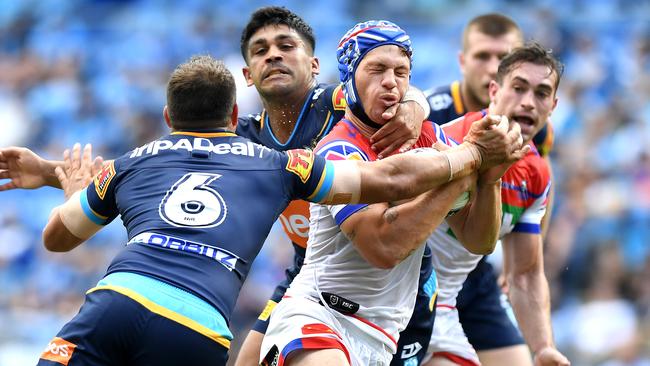
NRL
Don't miss out on the headlines from NRL. Followed categories will be added to My News.
REVEALED: Seven rule changes for 2020
They wandered in Thursday, trunk to tail, and politely ignored the elephant burping and picking his toenails in the corner of the room, and generally continuing to be a rude presence as they went about the order of business.
The ARL Commission on Friday announced the important changes to the game for next season.
They wrote into the lawbooks a new 20/40 rule and other rules but on the big one they blew it.
Stream over 50 sports Live & On-Demand with KAYO SPORTS on your TV, computer, mobile or tablet. Just $25/month, no lock-in contract. Get your 14-day free trial and start streaming instantly >

MORE NRL NEWS
NRL PREDICTED STARTING 17S AND SUPERCOACH ANALYSIS
BOYD: ‘I NEVER THOUGHT ABOUT GIVING THE GAME AWAY’
They had an opportunity to make great improvement but they overlooked it to concentrate on a couple of rule changes that do not appear to be any significant remedy for the game.
As one coach said after the proposals were put to them last month: “I just wish they’d let the game stay as it is for a year or two and stop changing the rules every bloody year.”
Change for change’s sake is usually what happens when you organise any kind of committee, though. They are like parking coppers; they feel compelled to act, if for nothing more than to justify the biscuits consumed throughout the day.
When was the last significant rule change introduced that wasn’t divisive?
The 20/40 rule is a new rule similar to another rule, the 40/20 rule, except that, you guessed it, it works in reverse order.
It is not a bad rule in itself.
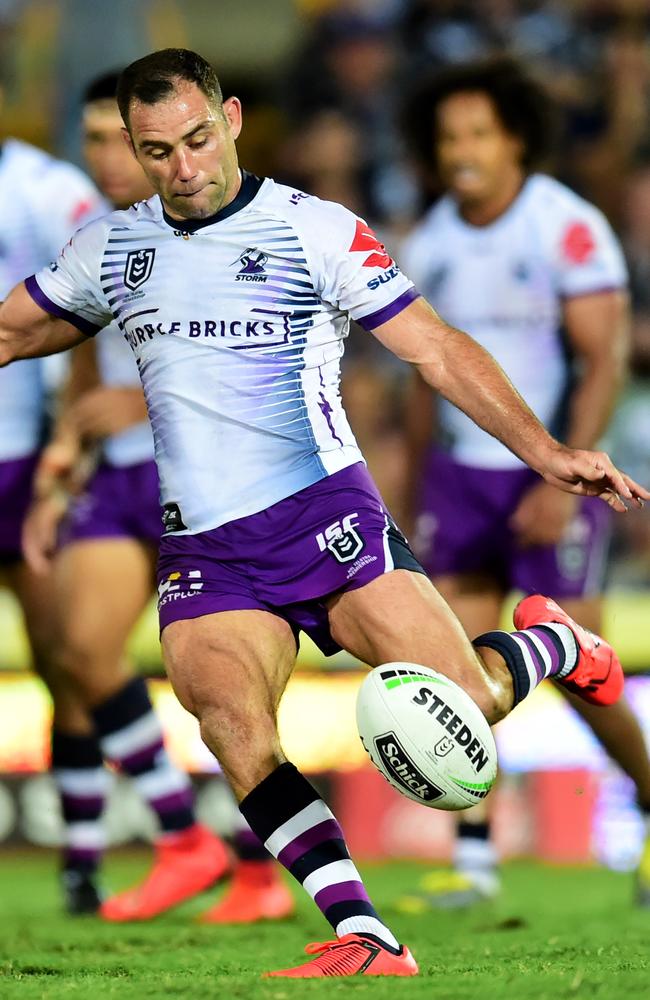
The 40/20 and 20/40 are there to entice more attacking football, a bribe for coaches to urge their playmakers to take a chance and a shot for a repeat set in a bid to break the monotony of set for set football.
But this is the concern that causes a small ache in the frontal lobes.
If the ARL Commission, on the recommendation of the rules committee, is pushing improvements to the game by manufacturing rule changes to promote attacking football, why are they not doing anything about the wrestle?
So the elephant in the room remains, picking his toenails and generally remaining a rude presence.
Wrestling has been slowly corrupting the game for near on 15 years now, with just the occasional tragedy to remind us of the stakes, and yet the game remains mute.
Who influences their silence is unclear. They deny it is the weight of the coaches, who suddenly find life whenever the wrestle is begun to be debated.
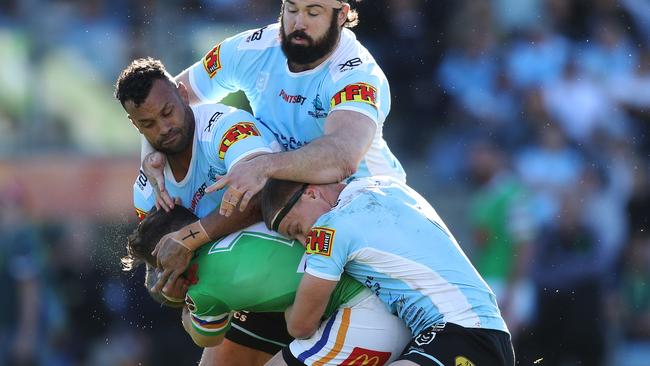
Certainly it can’t be for the fans. There has never been a game played yet where fans walked out of the stadium telling each other how much they enjoyed the wrestling that day. Coaches on the other hand …
Around August, when Cameron Smith improvised with Bailey Simonsson’s jersey given he didn’t have immediate access to a lariat, Melbourne claimed complaints about illegal wrestling moves were a Sydney agenda that comes up every year around.
Such paranoia is not new, Brisbane has been flourishing this way for years, but to address Melbourne’s concern, let’s have the conversation all year round.
The wrestle is slowly killing the game. And that is whether it is employed at Melbourne or the Roosters, Canberra or Manly.
All clubs are guilty.
Rugby league used to have a natural rhythm. It went that the time it took for a tackle to be effected and the ball played took about as long as it took for the defence to get back the 10m before they had to move back up again.
Teams pressed their advantage on both sides.
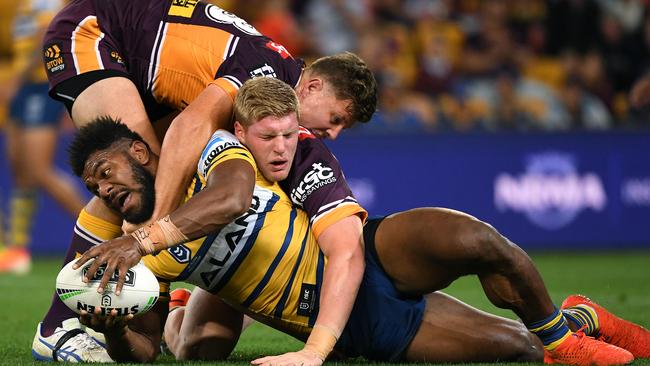
Defenders tried to hold the tackled player down as long as possible to give their defensive line a chance for a small rest, even as the tackled player wriggled to get up fast to reduce that rest.
Good runs were rewarded with a quick play-the-ball and good tackles were rewarded with the ball-runner taking longer to get up and play it.
Over time, though, under the influence of coaches who realise the quickest way to improve their team’s performance (and hence remain employed), was through defence, they orchestrated ways for delaying tactics to be considered part of the tackle.
The game has not kept up.
So the NRL has slowly allowed the exploited rules to be reclassified as interpretations, and to be commonly accepted nowadays, as the way it goes.
This corruption of the tackle, the wrestle, gets a large reminder each summer because for the past few years Fox Sports has played games from the 1990s when most agree, with the marriage of heavier training and new rules to encourage attack, the game was most aesthetically pleasing.
For all us dreamers it is impossible to not get carried away imagining what kind of game today’s athlete would provide under those interpretations.
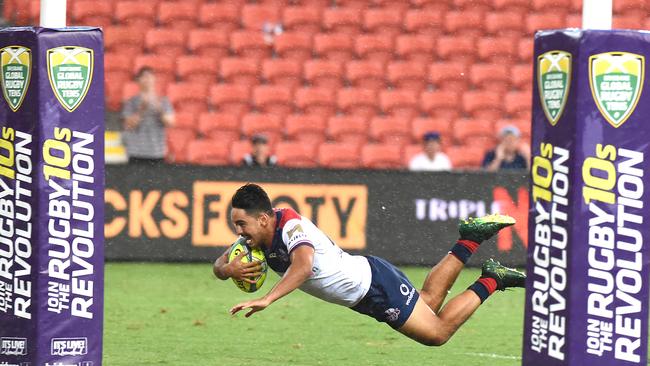
And all this at a time when it has never been more important than right now for rugby league to look its best.
There used to be three big winter codes in Australia. AFL dominated the southern and western States, league and union dominating NSW and Queensland, and soccer struggling for a foothold.
Rugby Australia is fast blowing it now. The A-League, after a brief emergence, is again struggling to survive.
The other two big Australian football codes are slowly applying the death-lock to them both and if the next pay-TV deals are poorly negotiated it could be the end for both soccer and rugby, at least as top tier sports in Australia. They will survive in suburban parks for some time longer but the game won’t be worth a red cent.
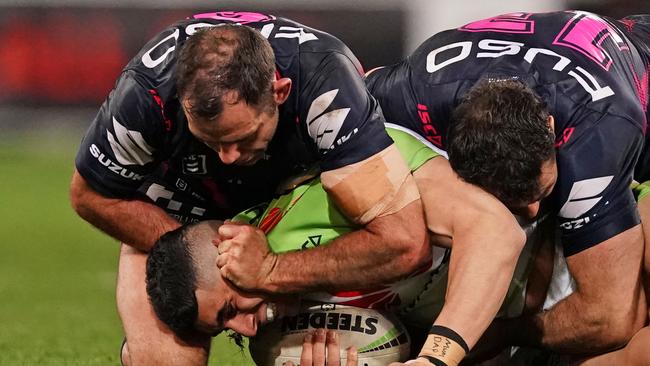
And once rugby and soccer go by the wayside AFL and NRL will turn their guns towards each other, at least in open warfare, as they fight to make it a survival of one.
Much of the battleground will be the fight for the television audience, who provide the big broadcast deals.
And the way they win that is by being attractive.
They realise it, like most sports around the world already have as well.
The NFL introduced rule changes this season to improve player safety but to also encourage more passing. Fans prefer to see quarterbacks hurling the ball through the air over handing off to a bull-necked running back grinding his way upfield.
Years ago basketball introduced the 24-second shot clock to promote scoring.
Cricket invented Twenty20 and has powered up the bats to quicken scoring. Rugby sevens is now an Olympic sport. The NRL even adopted the Nines.
As every sport around the world has searched for ways to quicken its game the NRL wilfully ignores coaching strategies that slow the game, making it better for coaching but not for watching.
They can’t complain they don’t get it. Both changes Thursday were made to improve the fan experience.
If that is the case, though, why won’t the NRL address the change needed most of all?
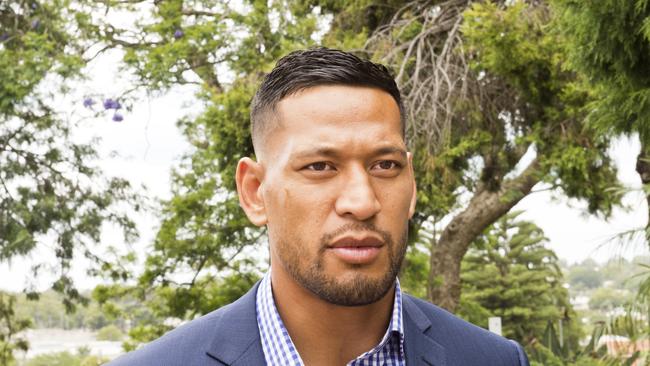
NO WINNERS IN RUGBY AUS V FOLAU RESULT
Supporters of Israel Folau and Rugby Australia alike, each camped firmly at the opposite ends of the spectrum, have a right to feel ripped off after Wednesday’s settlement.
Supporters of both sides argued strongly for their side, aggressively at times, and each remained comfortable in the acceptance their position was right.
For them, it had nothing to do with legal arguments, or the money at stake, but was all about the ethics and moral code we live by.
Folau and Rugby Australia led the argument for their teams.
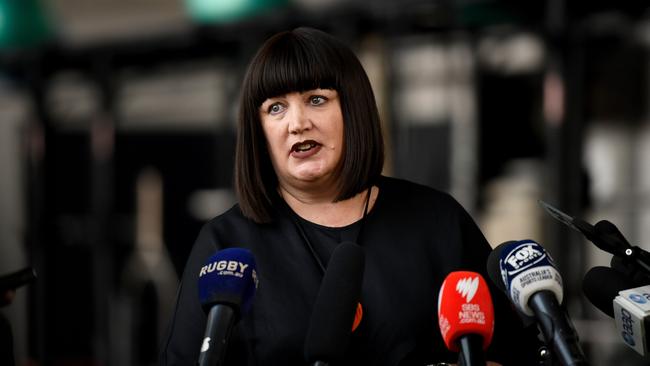
If it was so morally and ethically important to both sides, why did they insist, or agree, to a confidentiality clause?
It mocks the whole point of their stance, leaving the truth that each fought for their side until the cash was right.
Folau was the first to claim victory afterward, releasing a video to his supporters, and the following morning RA chief executive Raelene Castle was forced to prop up her side, saying claims Folau settled for $8 million were “wildly inaccurate”.
It could be argued that while both sides are talking like winners, they were both losers.
If it was morally so important to Folau, and if it was so important to Rugby Australia, why did they agree on a confidentiality clause at all?
